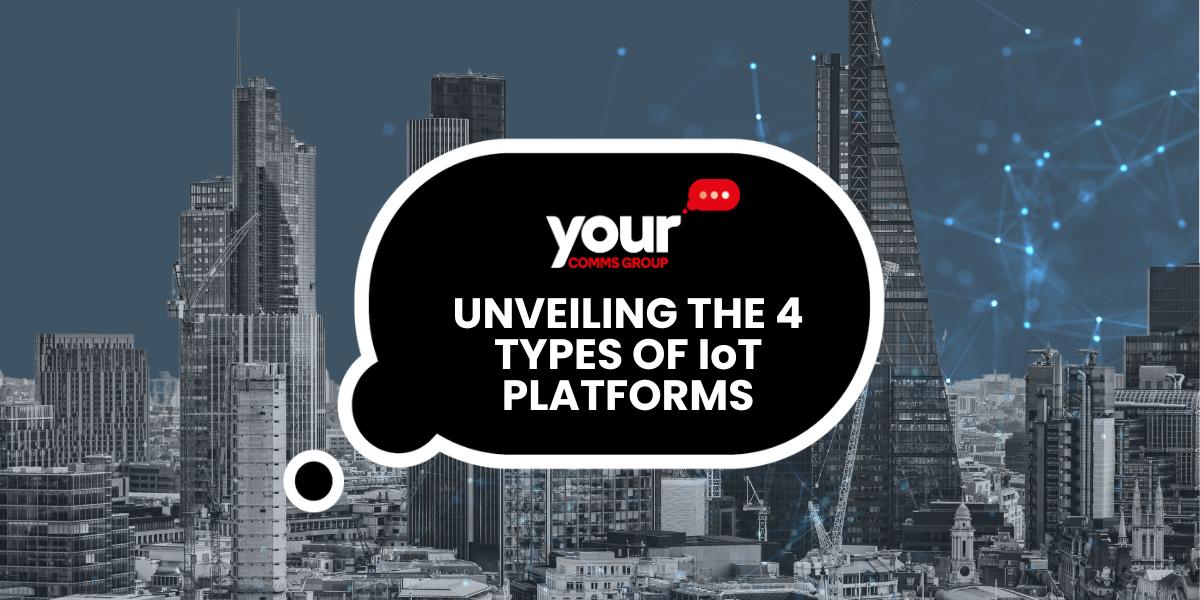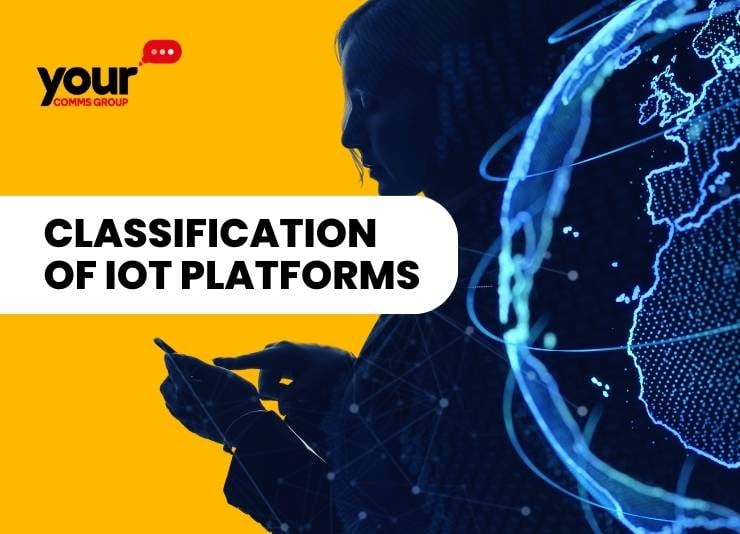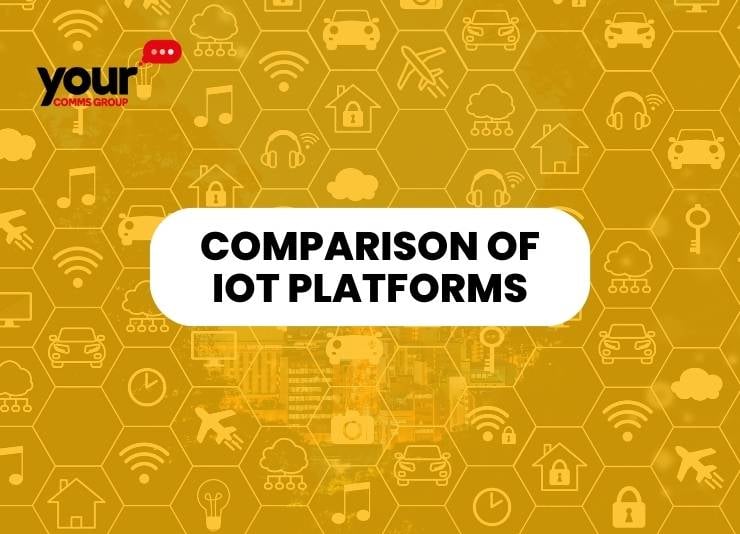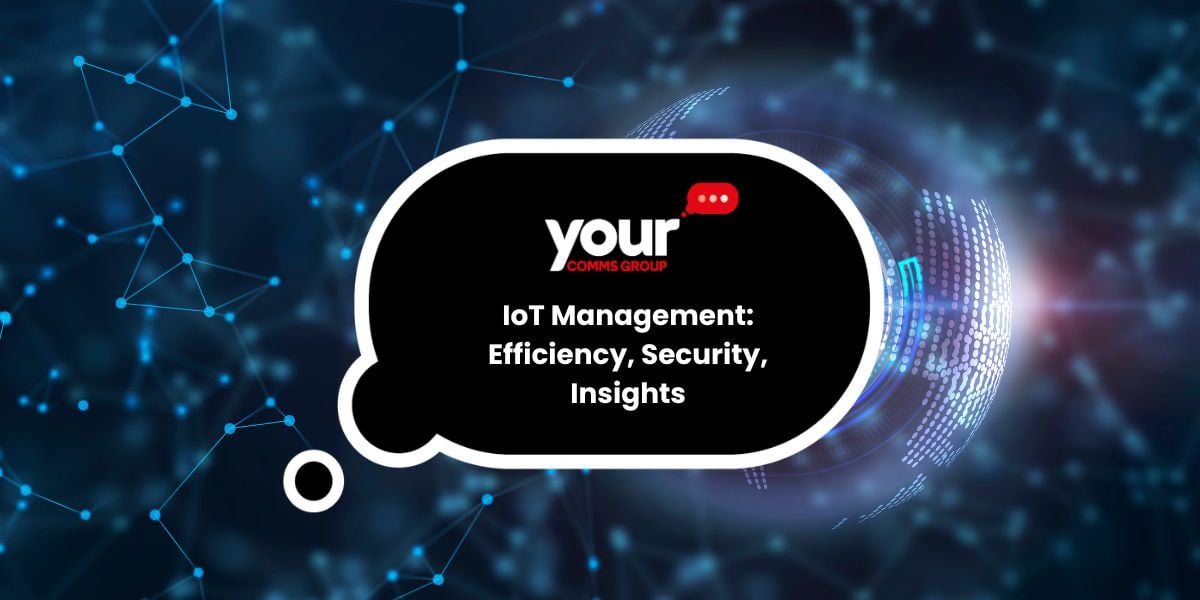IoT Connectivity for Remote Monitoring
In an era where technology is transforming the way we live and work, the concept of the Internet of Things (IoT) has become a game-changer in various...
5 min read
James Etherington : Jan 30, 2024 8:55:11 AM

The Internet of Things (IoT) has appeared as an important force for connecting devices and systems to promote seamless communication and data exchange in this digital era. IoT platforms lie at the centre of this interconnected revolution to streamline the integration of diverse devices, data sources and applications. These platforms tend to provide a common ground for communication and collaboration of devices, irrespective of their individual protocols or specifications.
IoT platforms help make and manage IoT applications. They provide a structured framework for developers and businesses to use connected technologies effectively. In the ever-changing world of IoT, these platforms are important. Apart from allowing the management of multiple devices, IoT platforms also play a part in creating new innovative opportunities. In this digital era, effective decision-making using a vast amount of data is driven by IoT platforms. In this blog, we will be exploring the four types of IoT platforms and understand their importance.
In the vast realm of the Internet of Things (IoT), where devices seamlessly communicate and share data, understanding the role of platforms is crucial. At its core, IoT involves the interconnection of physical devices through the Internet, enabling them to collect and exchange data. The sheer diversity of devices in IoT, ranging from sensors and actuators to everyday objects, necessitates a cohesive framework to manage this complexity.
This is where IoT platforms come into play where they act as intermediaries, facilitating communication, data storage, and analysis among devices. They provide a unified environment where disparate devices can seamlessly connect and share information. Essentially, these platforms act as the backbone of the IoT ecosystem, enabling the development and deployment of applications that harness the power of interconnected devices. As we delve into the exploration of IoT platforms, gaining a comprehensive understanding of their pivotal role becomes fundamental to harnessing the full potential of the Internet of Things.
Choose Your Comms Group as your telecommunication consultant – explore abundant connectivity options catering to IoT users, VoIP lovers, and those who prefer traditional phone lines.

Connectivity Management Platforms form the bedrock of the Internet of Things (IoT) ecosystem, serving as the foundation for seamless communication between devices. Primarily, these platforms are designed to facilitate and manage the connection of numerous IoT devices to the Internet, ensuring a reliable and secure network infrastructure. Their core purpose revolves around streamlining the complexities associated with device connectivity, allowing businesses to effortlessly integrate and oversee their IoT deployments.
Key features of Connectivity Management Platforms include robust device onboarding processes, secure data transmission protocols, and real-time monitoring capabilities. These platforms play a crucial role in optimising network performance, managing data traffic efficiently, and addressing potential connectivity issues promptly. As the IoT landscape continues to expand, Connectivity Management Platforms remain essential for establishing a resilient and scalable foundation that enables the seamless functioning of interconnected devices.
Secure your business with Your Comms Group's multi-network IoT SIMs and connectivity solutions. Ensure continuous device connectivity and effortless management with our IoT cloud platform.
TYPE 2: DEVICE MANAGEMENT PLATFORMS
Device Management Platforms play a pivotal role in the intricate web of IoT infrastructure by providing a centralised hub for overseeing and controlling a multitude of connected devices. At its core, these platforms focus on the efficient management of devices throughout their lifecycle, from deployment to retirement. Their functionalities encompass device provisioning, configuration, monitoring, and troubleshooting, ensuring seamless operation and optimal performance. Device Management Platforms offer a unified interface to register, update firmware, and remotely diagnose issues across diverse.
TYPE 3: APPLICATION ENABLEMENT PLATFORMS
Application Enablement Platforms (AEPs) form a crucial category within the diverse landscape of IoT platforms. These platforms act as a bridge, facilitating the development and deployment of custom IoT applications. AEPs provide a comprehensive environment where developers can design, test, and manage applications tailored to specific IoT use cases. This includes functionalities such as data analytics, device management, and connectivity solutions. The components of AEPs often encompass robust tools for data processing, APIs for seamless integration, and dashboards for monitoring and control. Features like these empower businesses to create bespoke applications that harness the full potential of their IoT ecosystems.
Use cases for AEPs span various industries, from smart cities and industrial automation to healthcare and agriculture. Organisations utilise these platforms to streamline operations, enhance decision-making through data-driven insights, and deliver a more personalised user experience. Success stories of AEP implementation showcase companies achieving operational efficiency, cost savings, and improved customer satisfaction. As businesses increasingly recognise the need for tailored IoT applications, Application Enablement Platforms emerge as pivotal tools in navigating the complexities of the IoT landscape, enabling innovation and efficiency in diverse domains.
Find the perfect broadband solution for your business with Your Comms Group. Experience super-fast broadband, maximum uptime, and competitive prices.
The fourth type of IoT platform, Data Management Platforms (DMPs), emerges as a crucial player, underscoring the paramount importance of data in the IoT landscape. These platforms serve as the custodians of the vast and diverse datasets generated by interconnected devices, focusing on collecting, storing, and processing this information efficiently. The significance of data in IoT cannot be overstated, as it forms the lifeblood of actionable insights and informed decision-making.
Data Management Platforms operate by employing robust data governance frameworks, ensuring the integrity, security, and accessibility of the amassed information. In practical terms, this involves aggregating data from disparate sources, normalising formats, and orchestrating seamless data flow. Real-world applications of DMPs span various industries, such as healthcare, where patient monitoring devices generate continuous streams of health data, or in smart cities, where sensors collect information on traffic patterns and environmental conditions.
By empowering organisations to harness the full potential of their IoT-generated data, Data Management Platforms play a pivotal role in shaping the transformative potential of the IoT ecosystem.

In comparing the four types of IoT platforms, it is crucial to evaluate their respective strengths and weaknesses. Cloud-based platforms offer scalability and flexibility, enabling seamless integration with various devices, but may face challenges in terms of data security and latency. Edge platforms, on the other hand, excel in real-time processing and reduced bandwidth usage but may lack the extensive computational power and storage capabilities of cloud counterparts. Fog platforms strike a balance by combining elements of both cloud and edge, providing local processing for low-latency applications while leveraging cloud resources for data storage and analytics. Meanwhile, device-centric platforms focus on individual devices, offering enhanced security and autonomy but may struggle with interoperability and centralised management. In selecting the most suitable IoT platform, factors such as security, scalability, and compatibility with existing systems must be considered.
Successful implementations, as demonstrated by case studies, further underscore the importance of aligning platform choices with specific business needs. Examples include leveraging cloud platforms for large-scale data analytics, deploying edge platforms for real-time monitoring in manufacturing, and adopting device-centric platforms for secure and autonomous applications in healthcare. These case studies illustrate the diverse applications of IoT platforms across industries, guiding businesses towards informed decision-making in their IoT strategy.
Optimise your business with the best MDM software from Your Comms Group. Manage mobiles, tablets, and desktops efficiently with our user-friendly Mobile Device Management software.
In conclusion, the exploration of IoT platforms underscores their indispensable role in the digital landscape. Connectivity Management Platforms form the foundational backbone, ensuring reliable connectivity, while Device Management Platforms efficiently orchestrate the lifecycle of connected devices. Application Enablement Platforms bridge innovation and application, enabling bespoke IoT applications across industries. Data Management Platforms emerge as custodians of valuable datasets, driving actionable insights.
The comparison of IoT platforms reveals nuanced strengths and weaknesses. Choosing the right platform is crucial, considering factors like security and scalability. Successful case studies in various industries guide businesses in making informed decisions, highlighting the pivotal role of IoT platforms in shaping the future of connected technologies and driving innovation.
Revolutionise your business connectivity with Your Comms Group! From bespoke mobile plans with leading networks to seamless IoT solutions, enterprise-grade VoIP systems, unbeatable SIM-only deals, and high-speed broadband, we've got you covered. Trust us as your telecommunication consultant, offering unique connectivity options, SD-WAN solutions, top-notch MDM software, and a range of cutting-edge devices.
Elevate your business with tailored solutions, expert support, and a price match guarantee. Take the next step in transforming your communication landscape. Contact Your Comms Group today for a free demo and consultation!

In an era where technology is transforming the way we live and work, the concept of the Internet of Things (IoT) has become a game-changer in various...

Integrating IoT (Internet of Things) technologies into the workplace is a practical and effective strategy for organisations seeking to enhance...

Managing many devices efficiently is a substantial challenge in the interconnected world of the Internet of Things (IoT). IoT Management Platforms ...